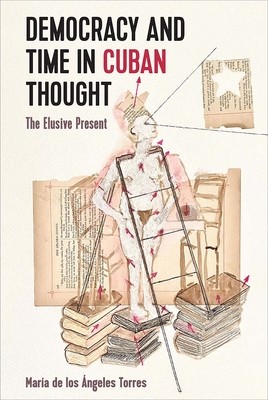
- We will send in 10–14 business days.
- Author: MarÃÂa de Los ÃÂngeles Torres
- Publisher: University of Florida Press
- ISBN-10: 1683404262
- ISBN-13: 9781683404262
- Format: 15.2 x 22.9 x 1.6 cm, minkšti viršeliai
- Language: English
- SAVE -10% with code: EXTRA
Democracy and Time in Cuban Thought (e-book) (used book) | bookbook.eu
Reviews
Description
How the temporalities of past, future, andpresent have been used in Cuban political rhetoric and expressed in Cuban culture
In this
fascinating analysis of political discourse in Cuban culture, MarÃÂa de los
ÃÂngeles Torres focuses on how the concept of time has been employed by different
political projects. While the past and future are often evoked in rhetoric associated
with authoritarianism, Torres argues, an emphasis on human actions in the
present is important for a more democratic political culture, and she searches
over a century of Cuban thought for this perspective. Delving into political texts and
essays, literature, and art, Torres puts theories of temporalities in
conversation with the Cuban experience. Torres closely examines the use of time
and its political implications in Fidel
Castro's "History Will Absolve Me" speech, the writings of Jose MartÃÂ and Che
Guevara, the poetry of Eliseo Diego and the OrÃÂgenes group, and paintings by
Cuban exiles Nereida GarcÃÂa Ferraz and MarÃÂa MartÃÂnez-Cañas. Recent events in
Cuba have placed the search for democracy and social justice center stage, and
Torres also studies the temporalities underpinning
these movements, asking whether these projects are providing alternatives to
overused past and future tropes. She suggests ways of thinking for today's
activists, encouraging them to remember history and imagine new possibilities
while cultivating space for human agency now. Publication
of this work made possible by a Sustaining the Humanities through the American
Rescue Plan grant from the National Endowment for the Humanities.
EXTRA 10 % discount with code: EXTRA
The promotion ends in 21d.22:36:48
The discount code is valid when purchasing from 10 €. Discounts do not stack.
- Author: MarÃÂa de Los ÃÂngeles Torres
- Publisher: University of Florida Press
- ISBN-10: 1683404262
- ISBN-13: 9781683404262
- Format: 15.2 x 22.9 x 1.6 cm, minkšti viršeliai
- Language: English English
present have been used in Cuban political rhetoric and expressed in Cuban culture
In this
fascinating analysis of political discourse in Cuban culture, MarÃÂa de los
ÃÂngeles Torres focuses on how the concept of time has been employed by different
political projects. While the past and future are often evoked in rhetoric associated
with authoritarianism, Torres argues, an emphasis on human actions in the
present is important for a more democratic political culture, and she searches
over a century of Cuban thought for this perspective. Delving into political texts and
essays, literature, and art, Torres puts theories of temporalities in
conversation with the Cuban experience. Torres closely examines the use of time
and its political implications in Fidel
Castro's "History Will Absolve Me" speech, the writings of Jose MartÃÂ and Che
Guevara, the poetry of Eliseo Diego and the OrÃÂgenes group, and paintings by
Cuban exiles Nereida GarcÃÂa Ferraz and MarÃÂa MartÃÂnez-Cañas. Recent events in
Cuba have placed the search for democracy and social justice center stage, and
Torres also studies the temporalities underpinning
these movements, asking whether these projects are providing alternatives to
overused past and future tropes. She suggests ways of thinking for today's
activists, encouraging them to remember history and imagine new possibilities
while cultivating space for human agency now. Publication
of this work made possible by a Sustaining the Humanities through the American
Rescue Plan grant from the National Endowment for the Humanities.


Reviews